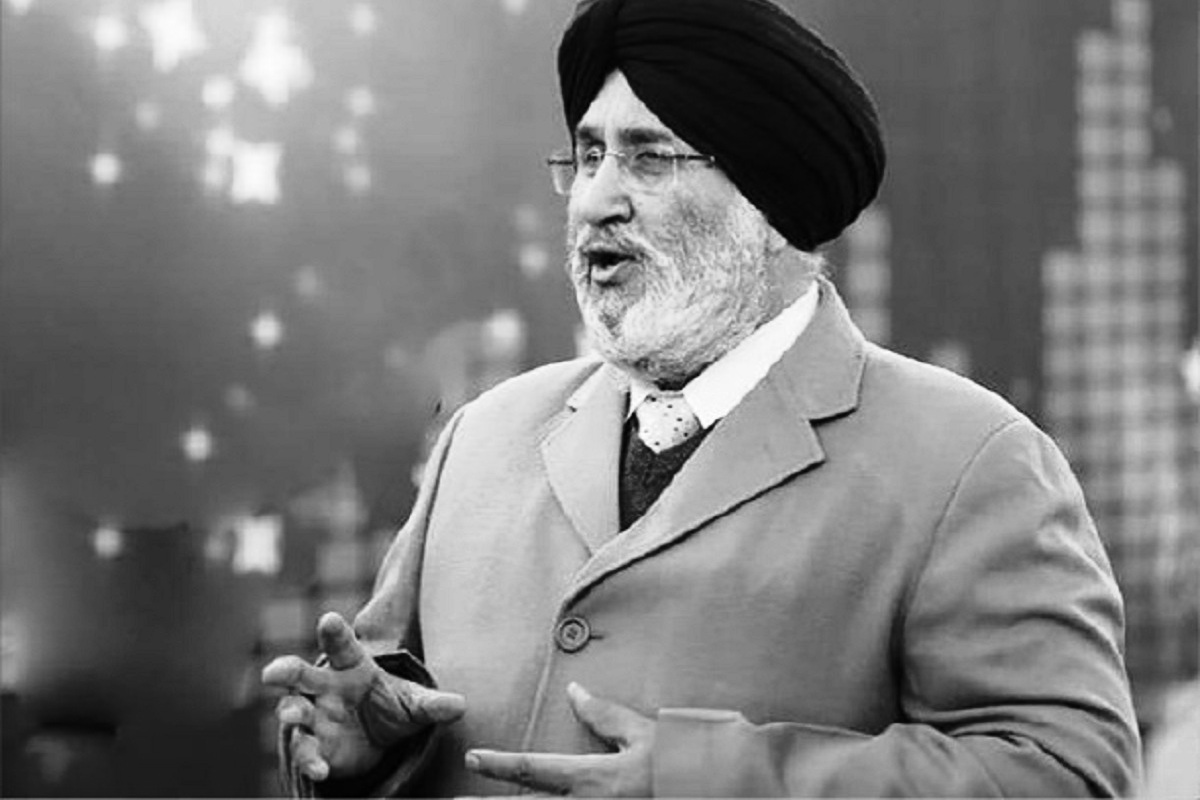Punjab expected to procure 132 lakh metric tons wheat: Chief Secretary
Punjab is expected to procure 132 lakh metric tons wheat, out of which 17.14 lakh metric tons have already been acquired, Chief Secretary Anurag Verma said on Sunday.
Dr Cheema served as education minister in the previous Parkash Singh Badal government in Punjab.

(SNS)
DALJIT SINGH CHEEMA, 58, is a leader of the Shiromani Akali Dal (SAD) and its spokesperson. The former legislator joined politics in 1993 seven years after completing his MBBS.
Dr Cheema served as education minister in the previous Parkash Singh Badal government in Punjab. In an interview with RANJEET JAMWAL, Dr Cheema spoke on a range of issues including the SAD’s decision to break its decades-old alliance with the BJP over the Narendra Modi government’s controversial farm laws.
Excerpts:
Advertisement
Q. Despite being the BJP’s oldest ally, the SAD first quit the Union Cabinet and then the BJP-led NDA after the passage of farm Bills in Parliament. What made SAD take this decision?
A. Basically, we had requested them (BJP) that these three farm sector Ordinances, which you (BJP) are saying are for the welfare of the farmers are not being accepted by the farmers and they are on the path of agitation.
You should not hurry and first convince the farmers, send these legislations to the Select Committee and after that when conditions are favourable and farmers are convinced about the provisions, then introduce them in Parliament.
But the way these Bills were introduced in Parliament in a hurry — because of that we had no alternative but to break the alliance. We belong to a top state in agriculture and it’s witnessing a big agitation over these legislations, so if you are not listening to your allies, what’s the use of continuing the alliance. So we broke the alliance over this issue.
Q. Questions are raised on the party’s silence when the Union Cabinet, of which Ms Harsimrat Badal was a part, cleared the Ordinances?
A. No, she (Harsimrat) raised her objections when the Ordinances were approved by the Union Cabinet. In fact, our (SAD’s) objection is there right from the beginning.
Q. What are your objections to the Centre’s new farm sector laws?
A. The overall perception of these three laws and the thinking of farmers has become that they are not profarmer. The second main perception is that today the Minimum Support Price (MSP) will continue but the way private markets are being allowed, ultimately its effect will be that the government’s marketing system will come to an end.
After a few years, farmer organisations fear private players may take over the whole procurement process and the government system will collapse. And once the government system collapses, then they (private players) will exploit the farmers and will do whatever they wish to.
Then there will be no MSP of the government and they will be at the mercy of traders. These are the main concerns of the farmers, that’s why we want that MSP must be declared as a legal right like Right to Education or any other right.
Q. Prime Minister Narendra Modi claims these reforms will prove to be “farmers’ shields”against middlemen. Your take?
A. Actually, wrong definition of middleman is being given (in the context of farmers) because an Arthiya (grain commission agent) is basically a facilitator. He is not a middleman. It’s not the case that he is buying it cheap from farmers and selling it at a big margin.
He is providing services like cleanliness, sheds to farmers, loading and unloading facilities. The second thing is that he also provides financial help, soft loans to farmers and fulfills their other requirements.
A middleman is someone who buys cheap and sells at a premium. An Arthiya is a facilitator, not a middleman.
Q. SAD has questioned the functioning of the National Democratic Alliance (NDA) under PM Modi.What’s been wrong with the ruling coalition at the Centre?
A. Basically, at the time of Atal Bihari Vajpayee, the consultation process (among the NDA allies) was much better. Even for smaller issues, the allies were called, meetings were regularly held, they were taken into confidence but day by day now a system of arrogance has started.
You may be a small partner or big partner, you expect that when a major decision is to be taken, you would be consulted and your inputs would be taken — that process has gone down.
Q. SAD and the BJP have together fought elections in Punjab for a long time. So will the SAD-BJP’s break-up affect Punjab politics?
A. In Punjab, this alliance has played a big role in maintaining peace and communal harmony in the state. Post 1984 and the 1990s, the Congress had alienated Sikhs in the country and Sikhs were labelled as terrorists.
Following the SAD-BJP alliance, a confidence was built up in the Sikh community, and over the years there were no communal riots in Punjab. Permanent peace was established in Punjab after such a long period of militancy. The SAD-BJP alliance played a major role in it.
Q. SAD is facing challenging times ahead of the 2022 Punjab Assembly polls.How do you see the way forward for the Akali Dal?
A. The Akali Dal has seen worse times than this. There were so many Akali Dals in 1980s and 90s. At one time only Simranjit Singh Mann’s Akali Dal was left and our main Akali Dal was out of the picture. But then the public ultimately accepted this Akali Dal only. Our party is over 100 years old, and our cadre is very mature. Our cadre has never supported such people (splinter groups).
Advertisement